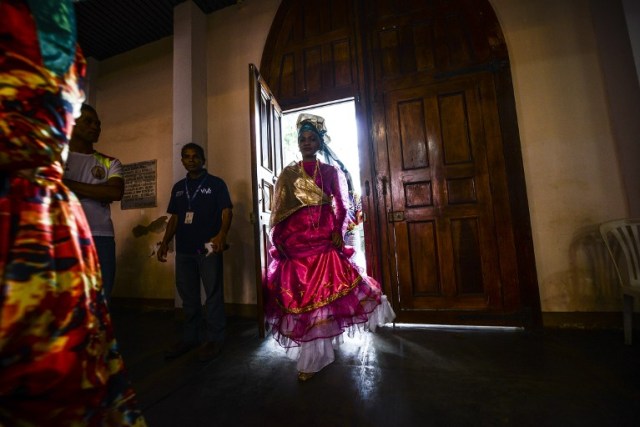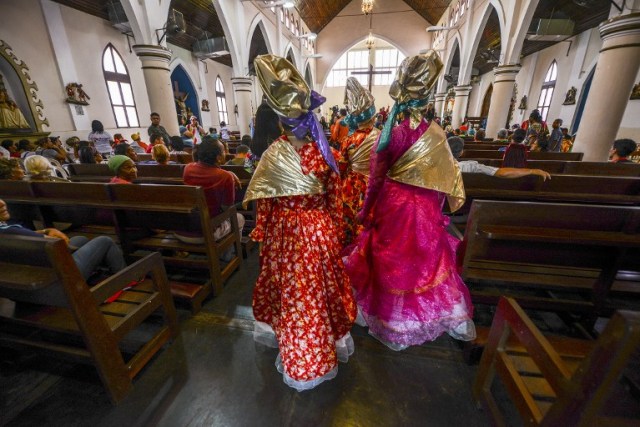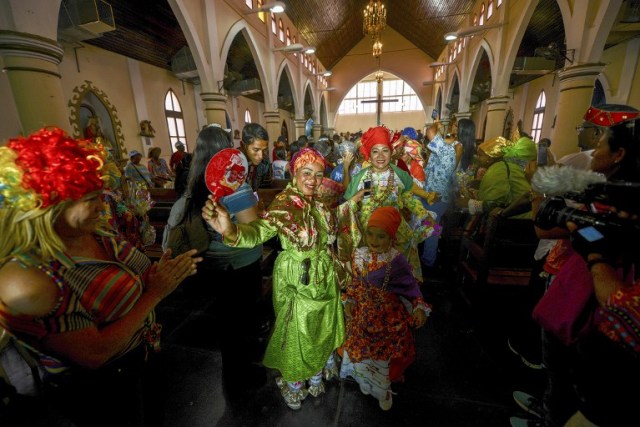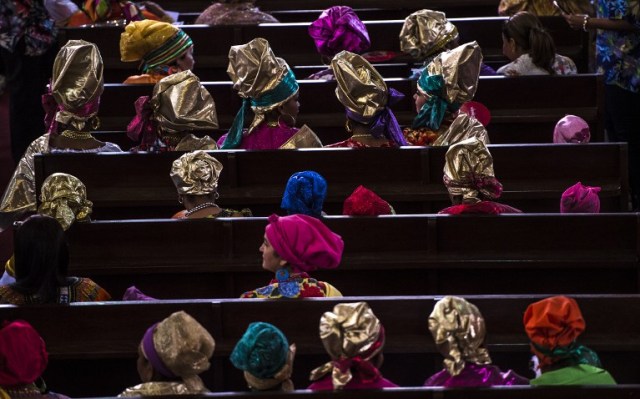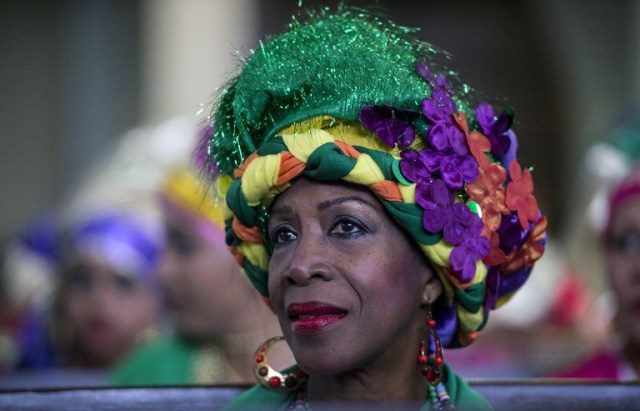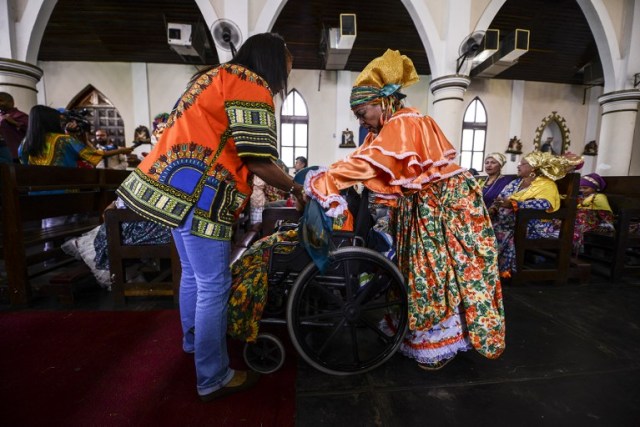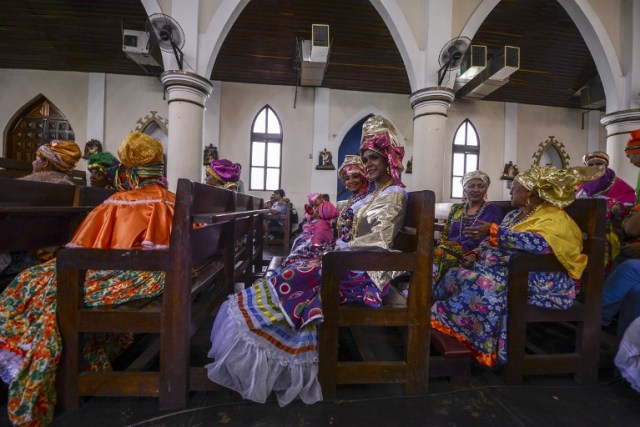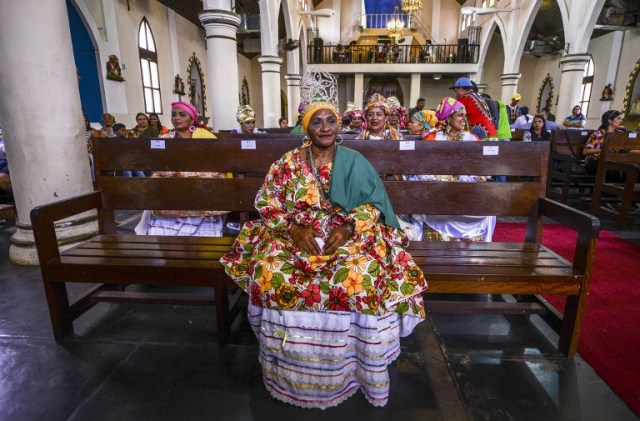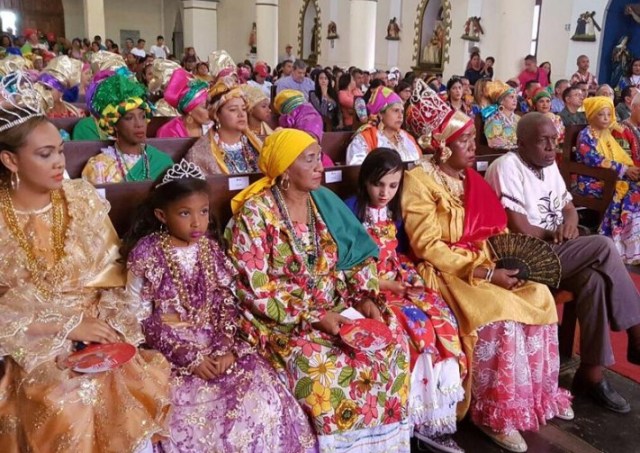
En la iglesia Nuestra Señora del Carmen de El Callao, en el estado Bolívar, se celebró hoy la tradicional “Misa de las Madamas”, evento que marca el inicio de los carnavales tradicionales de esta localidad, los más antiguos de Venezuela.
A esta celebración religiosa asistieron desde tempranas horas de la mañana más de 300 mujeres, desde muy jovencitas hasta adultas mayores, vestidas con llamativos y coloridos trajes, vistosa joyería y turbantes que hacen alusión a las matronas de la sociedad callaoense del siglo XIX.
Al terminar la ceremonia, como parte de una tradición de más de 110 años, las “madamas” darán inicio y encabezarán el primer desfile de comparsas y carrozas de este carnaval.
Este desfile, como sucede tradicionalmente, se prevé que se realice sin interrupciones por todas las calles de El Callao, hasta culminar a la medianoche del próximo martes.
Desde enero y hasta marzo, esta festividad agrupa a miles de participantes que se disfrazan de personajes históricos o imaginarios que desfilan al son del calipso.
Los Carnavales de El Callao fueron declarados Patrimonio Inmaterial de la Humanidad el pasado diciembre por la Organización de Naciones Unidas para la Educación, la Ciencia y la Cultura (Unesco).
Según el Comité intergubernamental de la Unesco este carnaval, que guarda relación con los festejos de emancipación celebrados en las Antillas de habla francesa, es una representación festiva de “la memoria e identidad cultural”, e incita a las nuevas generaciones a descubrir su patrimonio cultural.
“Este carnaval pone de relieve la historia de los callaoenses, fortalece su identidad y fomenta la unidad entre ellos”, aseguró la Unesco.
